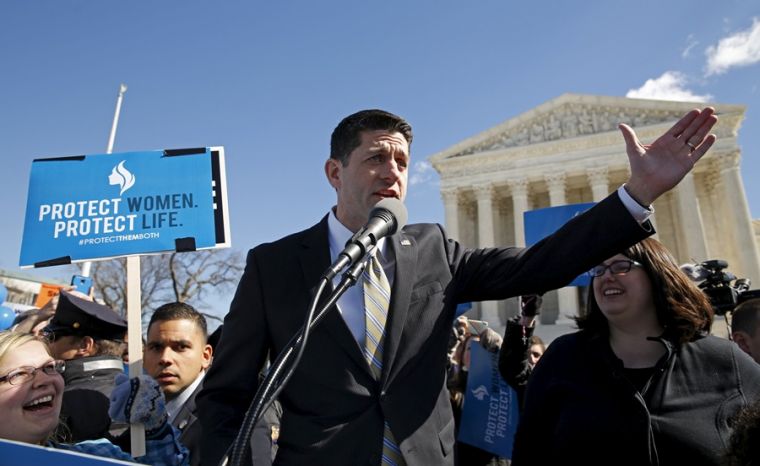Deeply split U.S. Supreme Court weighs in on Texas abortion case, ruling likely in June

The U.S. Supreme Court heard oral arguments from pro-life and pro-abortion advocates on Wednesday as it tackled the Texas abortion regulations that could close down many abortion clinics in the state.
With the death of Justice Antonin Scalia, it appears the outcome is in the hands of Justice Anthony Kennedy, according to the Associated Press.
Texas passed a law in 2013 that requires doctors who perform abortions to have admitting privileges at nearby hospitals and abortion clinics to meet hospital-like standards for outpatient surgery.
Pro-abortion advocates claim the law will cut the number of abortion clinics in Texas by three-fourths.
"But what is the legitimate interest in protecting their health? What evidence is there that under the prior law, the prior law was not sufficiently protective of the women's health?" Ruth Bader Ginsburg asked Texas Solicitor General Scott Keller.
Keller said more than 120 women are hospitalised yearly due to complications from abortions.
The abortion clinics, supported by the Obama administration, pointed out that the Texas law has already closed half of the 40 clinics and only 10 clinics would remain if the law is allowed to take full effect.
The Supreme Court has blocked the surgical centre requirement from taking effect.
Solicitor General Donald Verrilli Jr. asked the High Court to uphold abortion like what it did in 1992.
"If that right still does retain real substance, then this law cannot stand. The burdens it imposes, the obstacles, are far beyond anything that this Court has countenanced. And the justification for it is far weaker than anything that this Court has countenanced," he said.
But Chief Justice John Roberts and Justice Samuel Alito asked the clinic's lawyer, Stephanie Toti, to present evidence that the law has had drastic effect and if some clinics closed for reasons other than the regulations.
"What evidence is there that ties the closures to the requirements?" Roberts asked.
Kennedy would have held the decisive vote even if Scalia was on the court. Kennedy voted to uphold abortion rights in 1992 and wrote the majority opinion in another 5-4 case in 2007 that upheld a federal ban on the procedure known as partial-birth abortion.
If the Supreme Court is evenly divided, the justices may decide to rehear the case once a new justice is appointed.
Outside the court, anti-abortion protesters shouted "pro-life, pro-woman" while pro-abortion rights advocates nearby chanted "abortion is a human right."
House Speaker Paul Ryan appeared and told pro-life advocates, "We are the pro-life movement that is here to stand up for the women. We are here to stand up for the unborn and we are here to stand up for the rule of law."
The U.S. Supreme Court may decide on the issue in June.











